We want to create a pathway for Indian referees to reach elite level: PGMOL’s Richard Beeby
Richard Beeby, Professional Game Match Officials Limited's (PGMOL) International referee development manager, joined Hero Indian Super League (ISL) in an exclusive conversation to discuss pathways for Indian referees to break into the elite level and officiate matches at the highest echelons of football as Football Sports Development Limited (FSDL) becomes strategic partners for the ‘Elite Referee Development Program’ project.

Richard Beeby, Professional Game Match Officials Limited's (PGMOL) International referee development manager, joined Hero Indian Super League (ISL) in an exclusive conversation to discuss pathways for Indian referees to break into the elite level and officiate matches at the highest echelons of football as Football Sports Development Limited (FSDL) becomes strategic partners for the ‘Elite Referee Development Program’ project.
Here are the excerpts from the interview.
What are the key objectives that the elite referee development program aims to achieve in the next three years?
It hopefully will infuse and promote refereeing in India. Full stop. That's a major goal. Because we want to create a pathway for future Indian referees to come through. So we want in years for referees to start at the lowest level of the game and work their way up. So they're ready to referee at the elite level. We also want to be able to put in place all the support mechanisms required for Indian referees to operate at that higher echelon. And lastly, we want to put in a coaching structure that assists and helps referees on their journey towards elite refereeing. So they're the three main aims of a development plan going forward.
Will the panel of professional referees be identified? Will this include existing referees, or will it be much broader than that?
Well, no. You've got some very good referees on that panel already. Let's don't underestimate the skills that they've got. So in the very short term, you'll probably see a panel which is in existence now. But the key to it is, is the drive for referees to become elite referees in the future, and to push those already on it to make their standard even better. So competition is very healthy. So I expect your elite panel to stay as it is in the very short term, but referees to really want to push their way onto that panel in the future.
Can we expect technological aids going forward in the heat of a cell? And if yes, what are the kinds of technological aids that we can expect?
Well, you've also got, you've got one big technical aid laid in already. And that's the communications kit, which the referee and the system referee in the fourth edition used to talk to each other. And how it's used can't be underestimated. So that's already there. So a team working together, moving forward, obviously, the two big ones everybody talks about is VAR and Goal Line Technology. And I know the colleagues in India are beginning to review whether that will pay dividends for your football going forward. We use it obviously extensively in England.
And there are two models. There's the full VAR, and what they call VAR lite, and much of that depends on the resource available. It's a safety net for refereeing. VAR is predominantly there for those big impact decisions, that unfortunately, the onfield decision is clearly not quite correct. So it's a safety blanket to make sure that those high impact decisions don't overly influence the game and the correct decision is reached. Whether you have them in India, that's a matter for India, in terms of the Football Association, working together with the league regarding its incorporation into Indian football.

























